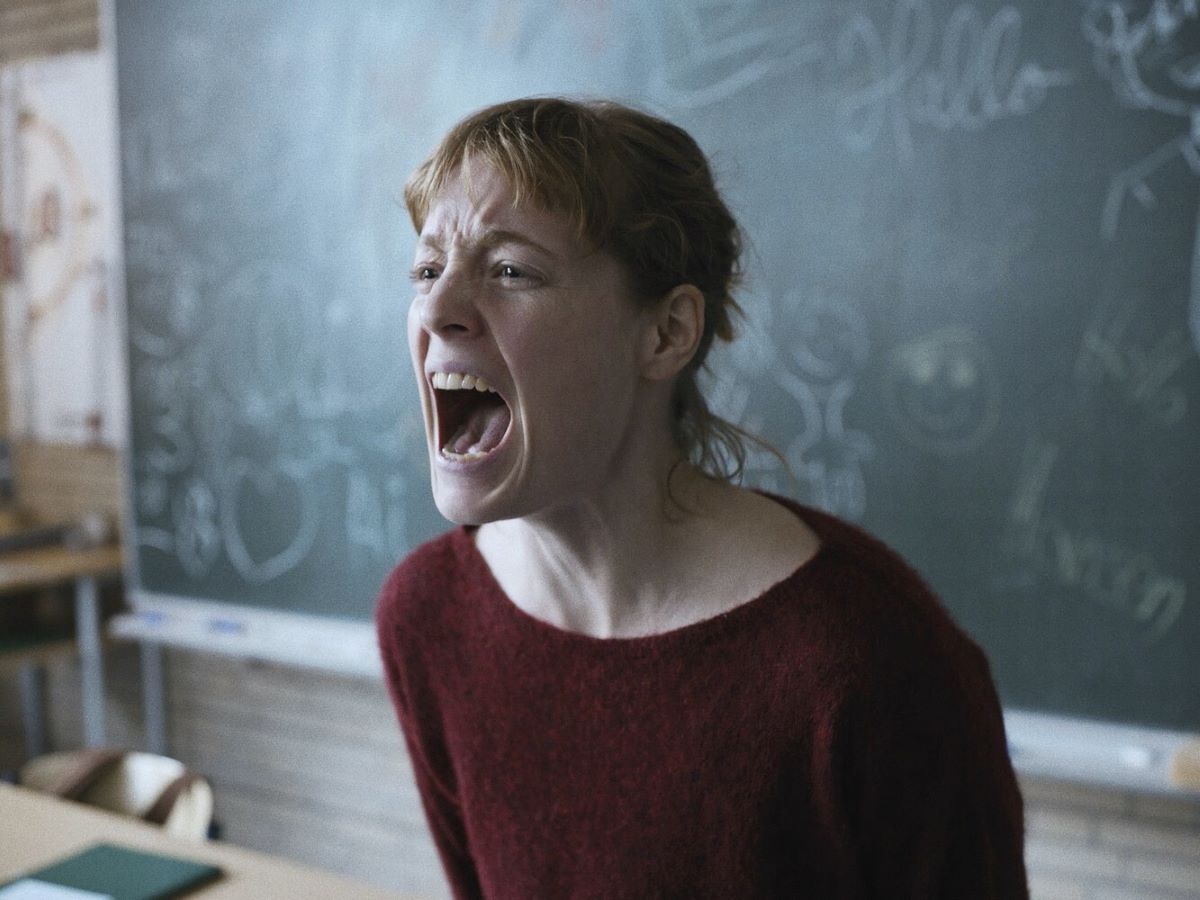The Teachers’ Lounge (2023)
Original title: Das Lehrerzimmer
Director: İlker Çatak
The Teachers’ Lounge is the fourth feature film by Turkish-German director İlker Çatak.
The ideal and idealistic teacher, John Keating (Dead Poets Society), has passed away, and even the school isn’t feeling too well amid budget speculation, program shuffling, and physical violence against the ‘body’ of teachers, easy targets for students and their families. The era of students receptive to a teacher’s education, who were encouraged to exceed their limits, think deeply, and embrace their passions to better anticipate, understand, and analyze them, has passed like Horace’s carpe diem. Gone too is the era of the teacher as a beacon in the night for adolescents lost in their intense, burning emotions, and of poets standing on desks shouting “O Captain! My Captain!”, consecrating themselves to the glory of the word.
İlker Çatak, a Turkish-German director on his fourth outing, ventures into ‘the teachers’ lounge’ and paints the changes within the school, especially in terms of communication: parents organize outside and communicate via WhatsApp, students publish engagé newsletters while the administration encourages snitching following a series of unpleasant thefts. If the titular lounge becomes the epicenter of an event that will shake the school’s equilibrium, at the heart of the equation is a woman, Carla Nowak. A teacher of Polish origin, she arrives at the beginning of the semester at a German secondary school where she teaches mathematics and physical education, the mind and the body. Frau Nowak has the enthusiasm of new beginnings and a sincere desire to do well through small greeting rituals or calls to calm. ‘Foreign’ and secretive, we know nothing of her life outside school, Carla looks into her class’s eyes and opens her arms like a conductor.
However, no one will be led so easily in The Teachers’ Lounge; after all, the protagonist is not an authoritarian teacher. When a student of Arab origin is suspected of theft, the young woman opposes hasty judgments and begins to investigate to establish the truth. Unwillingly, she fans the flames of issues that question respect for privacy, discrimination, the limits of her profession, student hostility, and parental interference. With piercing cello strikes, İlker Çatak turns the joyful chaos of a school into an oppressive educational suspense. Thefts, lies, snitching, guilt, a congestion of ‘crimes’ drives the plot and poses various problems without pretending to offer a single solution. Carla’s idealism will clash with reality, never so intangible. Suspicion reigns supreme in the film where teachers suspect students, who suspect teachers, who in turn are suspected by parents. Paranoid doubt infiltrates everywhere without the film abusing the escape lines offered by corridors, the geometry of desks, or classroom corners.
The Teachers’ Lounge remains constantly focused on the face of its heroine, magnificently embodied by Leonie Benesch, radiant with physical energy and combativeness like Isabelle Huppert. Before a terrified viewer, the tension acts on the young teacher’s body, collecting wrong decisions and missteps, instilling, in her mind as in the audience’s, a rosary of doubts from which the story wisely avoids drawing hasty conclusions. The camera work oscillates between escape and lethargy, rushing behind Clara in endless corridors or fixing on the faces of the protagonists and their irritability. It’s impossible to anchor oneself to anyone or anything because if the truth is easily deduced from facts and observation, the film keeps it in a shadowy zone that is inherent to cinema.
At the center of the frame returns the dramaturgy, forcing us into abstraction, conferring a sort of universality to the theme of guilt which unfolds here from various viewpoints. Rules, algorithms, the logical way of solving the Rubik’s Cube, all crash against a malaise, almost German, almost universal. The Teachers’ Lounge is the unsettling parable of a well-meaning teacher who knows that education is a delicate art but, by sparing the guilty and protecting the younger ones from reality (the existence of injustice, lies, misinformation…), ends up finding herself in a dead-end, threatened, alone, stricken. Nominated (deservedly) for an Oscar – in the ‘Best International Feature Film’ category – and constructed as a psychological thriller behind a conventional title, The Teachers’ Lounge steers the narrative towards a current issue: the alienating power a student can exercise over a teacher. In a sudden and formidably effective epilogue, the stakes shift from pure mystery to social study: the loss of teacher trust, the difficulties and expectations of teaching, systemic racism, the media crisis, the decline of democracies, and of course, the tyrannical child, triumphing on his throne.
Marzia Gandolfi
Film TV, February 29, 2024





